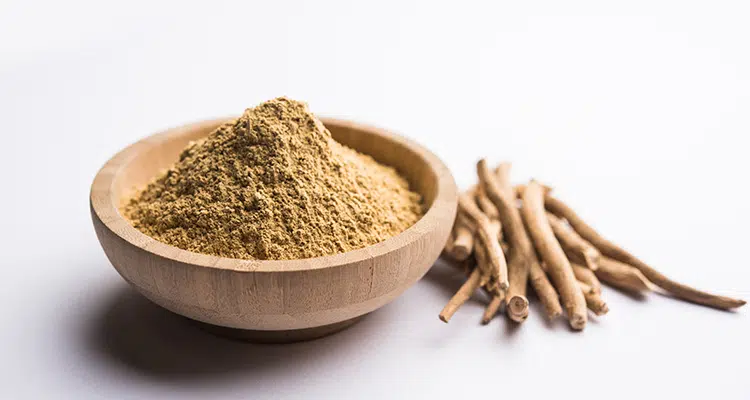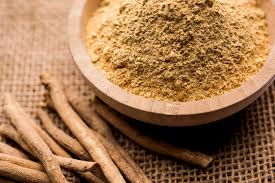Getting To Sleep Quicker with Ashwagandha
Having trouble getting to sleep? Is it a struggle to rest your head each night?
Sleeping well is essential for overall health. Getting enough quality sleep has many positive impacts on our physical and emotional well-being, yet sometimes falling asleep can be difficult. If you’re having issues with getting to sleep quickly, you may benefit from turning to an ancient medicinal remedy- ashwagandha.
Ashwagandha is an adaptogenic herb used in Ayurvedic medicine for centuries; it helps the body better protect itself from stress and tension. Its calming effect has made it a popular natural remedy for promoting deep and restorative sleep. Here’s how ashwagandha can help you get to sleep faster at night and improve your health overall.
How Ashwagandha Can Help You Fall Asleep Faster
Ashwagandha is a plant that has been used for centuries in Ayurvedic medicine as an alternative treatment for sleep disorders. It is available in multiple forms, such as powder, tea, pill, tincture, or gummies. The optimal dosage of ashwagandha is still under debate and may differ between supplements. It should not be used for more than three consecutive months. When purchasing ashwagandha products, shoppers should take additional measures to make sure they are purchasing reputable products.
Sleep is essential for good health and well-being; however, over 30% of adults report sleeping less than the recommended seven hours per night. Ashwagandha has been studied for its potential to improve sleep quality and duration. However, it is important to note that the Centers for Disease Control and Prevention (CDC) recommends consulting a doctor before taking any new medication or changing current treatment. Therefore, if you are considering using ashwagandha to help with sleep, it is important to speak with your doctor first.
Studies have shown that ashwagandha can help reduce stress and anxiety levels, which can lead to better sleep. It has also been found to reduce cortisol levels, a hormone associated with stress. Additionally, ashwagandha may help improve the quality of sleep by increasing the amount of time spent in deep sleep. This is important because deep sleep is the most restorative stage of sleep.
What Is Ashwagandha?
Ashwagandha is an herbal medicine used in traditional Ayurveda health practices. It is made from the small evergreen shrub Withania somnifera, native to India and Southeast Asia. Ashwagandha has been used for thousands of years to reduce stress, boost energy, and enhance concentration. It is believed to have a variety of benefits, including reducing inflammation and pain, as well as reducing anxiety.
The active ingredients in ashwagandha are thought to be alkaloids, saponins, and withanolides. These compounds are believed to have anti-inflammatory properties that can help reduce pain and swelling associated with various conditions. Additionally, ashwagandha may help reduce stress levels by increasing serotonin levels in the brain. This can lead to improved moods and better sleep quality. Although more research is needed to confirm its efficacy and safety, ashwagandha has been used for centuries as a natural remedy for many ailments .

Health Benefits of Ashwagandha
Ashwagandha is an adaptogen that has been used in traditional Ayurvedic medicine for centuries. It is said to have anti-inflammatory and antioxidant properties, and may be effective in treating anxiety and cognitive impairment. While more scientific evidence is needed to back up these claims, researchers are still exploring the potential health benefits of ashwagandha.
Tiffany La Forge is a professional chef, recipe developer, and food writer who runs the blog Parsnips and Pastries. Her blog focuses on real food for a balanced life, seasonal recipes, and approachable health advice. Tiffany also enjoys yoga, hiking, traveling, organic gardening, and spending time with her corgi Cocoa. She believes that incorporating ashwagandha into one’s diet can help reduce stress levels while providing other potential health benefits. With its anti-inflammatory properties and ability to fight anxiety, ashwagandha could be an important addition to any healthy lifestyle.
How to Use Ashwagandha for Sleep
Ashwagandha is an adaptogenic herb that has been used in Ayurvedic medicine for centuries to help with sleep. It is believed to work by influencing sleep directly and by reducing stress, which can have a positive effect on sleep quality. Preliminary research suggests that ashwagandha may be beneficial for improving sleep, but more studies are needed to confirm these findings.
Ashwagandha is available in multiple forms, such as powder, tea, pill, tincture, or gummies. The optimal dosage of ashwagandha is still under debate and may differ between supplements. It is important to consult with a doctor prior to using ashwagandha and to make sure the product is reputable. Additionally, it’s important to note that ashwagandha should not be taken with other medications or supplements without consulting a doctor first. With the right dosage and guidance from a healthcare professional, ashwagandha may be an effective natural remedy for improving sleep.
Sleep quality and anxiety
Sleep quality and anxiety are closely linked, with poor sleep often leading to increased levels of stress and anxiety. A recent study has found that taking ashwagandha root extract daily for 10 weeks can significantly improve sleep quality, total sleep time, total time in bed, and sleep onset latency. The researchers used a combination of actigraphy and sleep logs to track participants’ sleep patterns. Furthermore, those who took 300 mg of ashwagandha twice daily for 10 weeks experienced better sleep quality than those who took a placebo.
The effects of ashwagandha are believed to be due to triethylene glycol and withanolides, which induce sleep and help the body cope with stress respectively. This is especially beneficial for those with stress-related insomnia as it has been shown to improve their overall sleep quality when taken at a dosage of ≥600 mg/day for 8+ weeks. Therefore, taking ashwagandha may be an effective way to improve both sleep quality and anxiety levels.
Help falling asleep
Ashwagandha, an ancient medicinal herb, has been found to help induce sleep in mice. A component of ashwagandha, triethylene glycol, was found to be effective in helping mice fall asleep. However, withanolides, active compounds found in the root or whole plant, did not have the same effect. This suggests that further research is needed to determine if ashwagandha can be used to treat insomnia in humans.
Two and four trials were conducted with 788 and 995 participants respectively which revealed the efficacy of Ashwagandha extract for improving sleep quality. The results showed that those who took Ashwagandha experienced a significant improvement in their sleep quality compared to those who did not take it. This suggests that Ashwagandha may be a potential natural remedy for insomnia and other sleep-related issues. Further research is needed to confirm these findings and explore its potential use as a treatment for insomnia in humans.
In addition to helping with sleep quality, ashwagandha may also help reduce stress and anxiety. A study conducted on 64 participants found that those who took ashwagandha experienced a significant reduction in their levels of stress and anxiety compared to those who did not take it. This suggests that ashwagandha may be an effective natural remedy for reducing stress and anxiety levels, which can in turn help improve sleep quality.

How Ashwagandha Compares to Other Sleep Aids
Ashwagandha is a popular natural sleep aid that has been used for centuries in Ayurvedic medicine. While there is little to no research directly comparing ashwagandha to other sleep aids, a review found that valerian, passionflower, and ashwagandha may be the most promising natural sleep aids. Preliminary research suggests that ashwagandha may help people fall asleep faster, spend more time asleep, and experience better sleep quality.
The active ingredients in ashwagandha are believed to ease stress which has been linked to poorer sleep quality and excessive daytime sleepiness. Compounds present in ashwagandha such as triethylene glycol and GABA receptors may also be responsible for its sleep-promoting effects. If you are having trouble sleeping it is important to talk to your doctor as they may be able to recommend a safe treatment plan that includes natural, alternative, or pharmaceutical sleep aids.

Side Effects of Ashwagandha
Ashwagandha is an herb that has been used in Ayurvedic medicine for centuries. It is often referred to as “Indian ginseng” but is not related botanically. Ashwagandha has many potential health benefits, but it can also cause side effects. People with abnormal methylation issues and copper toxicity should be cautious when taking ashwagandha.
Common side effects of ashwagandha include digestive upset such as nausea, gas, bloating, diarrhea, and vomiting. Rarely, ashwagandha can cause liver problems. Taking large doses of ashwagandha increases the risk of experiencing side effects. Additionally, there are unknown long-term safety concerns associated with taking ashwagandha and potential damage to organs or other body systems if taken in high doses or for extended periods of time. Therefore, it is important to consult a healthcare professional before taking this supplement to ensure safety and proper dosage instructions are followed.
Conclusion
In conclusion, ashwagandha is a popular natural sleep aid that has been used for centuries in Ayurvedic medicine. Research suggests that it may help people fall asleep faster, spend more time asleep, and experience better sleep quality. However, it is important to consult a healthcare professional before taking this supplement to ensure safety and proper dosage instructions are followed as there are potential side effects associated with taking ashwagandha.














Leave a Reply